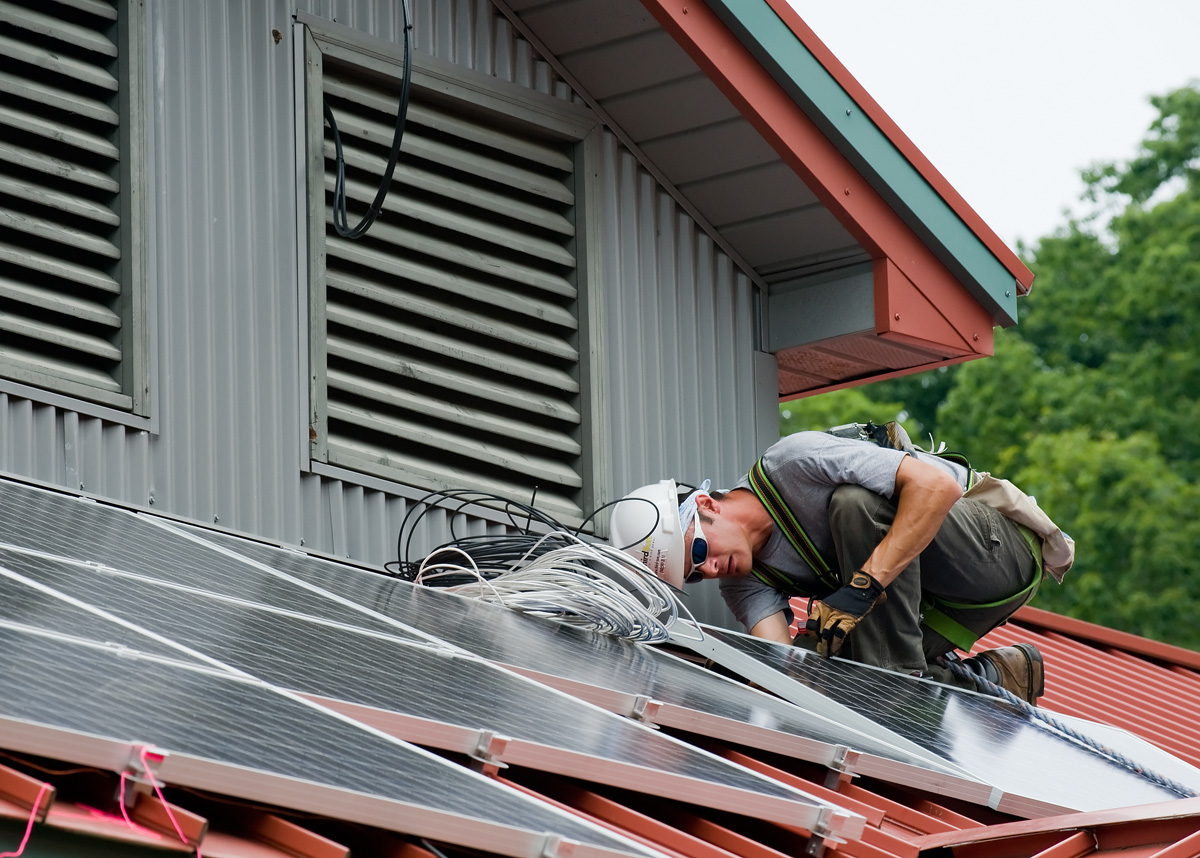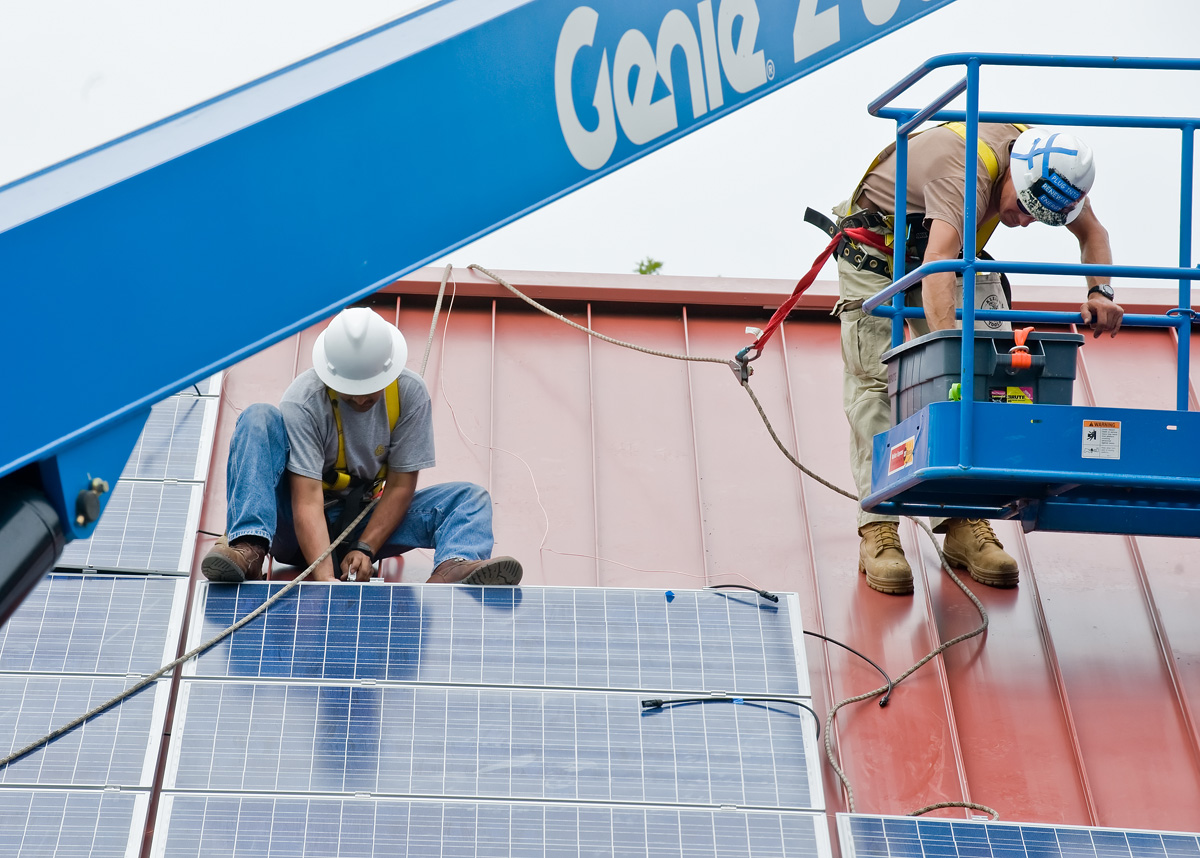By Cyrus Reed
Last month, the Austin City Council held a public hearing and adopted a “Solar-Ready” amendment to its energy construction code. The new amendment, which passed with a 9-1 vote, will require all new commercial and residential development to be capable of hosting solar panels. Austin is the third city in Texas to adopt a solar-ready requirement for new construction, but the first that will cover both residential and commercial developments.
The amendment requires all new homes over 800 square feet, all multi-family buildings, and all commercial buildings over 2,000 square feet to designate a “solar-ready” zone on their roofs, as well as designate an area on their electrical boxes for future solar systems. While no physical infrastructure would be required, developers and designers will need to identify at least 240 square feet of roof space on residential construction, 35% of roof space on multi-family buildings, and 25% of commercial roof space where a solar PV system could be added.


These specifications provide incentive for developers to think about future solar and where it can best be located on the West and South-facing roofs of planned development. Today, many homeowners find solar to be too expensive because their roofs do not have an unencumbered West or South-facing space for a potential installation. Also, under the amendment, any developer can avoid the solar-ready requirement by installing at least two kilowatts of solar on the roof, creating further incentive for more solar to be installed up-front.
The adoption has been a major effort of the Sierra Club over the last year and a half, working with Austin Energy staff to develop a flexible amendment that covers new residential and commercial facilities. The process also included significant input by the Resource Management Commission, Electric Utility Commission, members of the Homebuilder Association, AIA, solar installers and commercial developers. An analysis by Austin Energy found that the change will only increase initial design costs by roughly $100 per unit, but will significantly decrease future costs for adding solar.
In the meantime, last year the City of Houston and City of Lewisville adopted a residential solar-ready requirement as part of their code update. These efforts were supported by the Lone Star Chapter and local Sierra Club groups.